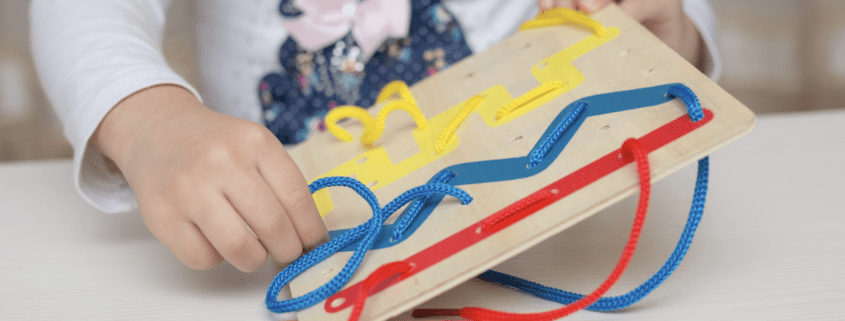In the realm of early childhood education, Montessori preschools have garnered widespread recognition for their unique approach to fostering children’s development. Founded by Dr. Maria Montessori in the early 20th century, the Montessori method emphasizes self-directed learning, hands-on activities, and an individualized approach to education.
This article delves into the vital milestones achieved at a Montessori preschool and how the Montessori cadence facilitates these milestones during a child’s formative years.
The Montessori Method and Its Foundation
The Montessori method is based on the belief that children are naturally curious and capable of learning independently when given the right environment and tools. At a Montessori preschool, children are encouraged to
- explore their surroundings,
- engage in practical activities,
- and develop essential life skills.
The environment is carefully designed to promote self-discipline, concentration, and a love for learning. The Montessori milestones help achieve these goals.
Montessori Milestones: Independence and Self-Confidence
One of the primary milestones achieved at a Montessori preschool is the development of independence and self-confidence. When educators allow children to make choices and decisions within a structured framework, kids gain a sense of autonomy and empowerment. This is practiced through practical life activities such as
- pouring,
- dressing themselves,
- and cleaning up.
These exercises boost a child’s self-esteem and foster a can-do attitude.
Montessori Milestones: Cognitive Growth and Critical Thinking
Montessori children are presented with materials that are specifically designed to challenge their intellect and problem-solving abilities. Through manipulating these materials, children develop their logical thinking and analytical skills, laying a strong foundation for future academic achievements.
Montessori Milestones: Emotional and Social Development
Emotional and social development are paramount at a Montessori preschool. Classrooms encourage social interactions and empathy. Younger children observe and learn from their older peers, while older children develop leadership and mentorship qualities.
The emphasis on grace and courtesy helps children build respectful and harmonious relationships with others.
Montessori Milestones: Language and Communication Skills
The language area in the Montessori classroom is rich with activities that foster vocabulary expansion, phonetic awareness, reading, and writing. Through storytelling, conversations, and exposure to diverse literature, children develop a love for language and communication.
Montessori Milestones: Mathematic and Scientific Understanding
Math and science are not intimidating subjects at a Montessori preschool. The carefully crafted materials introduce abstract concepts in a concrete manner, making them accessible and enjoyable for young learners. Montessori materials, such as the golden beads for arithmetic and the puzzle maps for geography, lay the groundwork for a strong understanding of mathematical and scientific principles. Plus, it makes this kind of learning fun and fulfilling.
Montessori Milestones: Sensory and Motor Development
The practical life area offers activities that refine fine and gross motor skills, hand-eye coordination, and spatial awareness. These skills are not only crucial for academic success but also for a child’s overall physical and cognitive development.
Montessori Milestones: Respect for the Environment
Montessori education instills a deep respect for the environment and nature. The outdoor environment in Montessori schools is often an extension of the indoor classroom, providing opportunities for children to
- connect with nature,
- appreciate the outdoors,
- and develop an environmental consciousness from an early age.
The Role of Montessori Cadence in Achieving Milestones
The success of Montessori preschools in achieving these vital milestones can be attributed, in part, to the Montessori cadence.
The cadence refers to the rhythm and structure of the daily routine, which is carefully designed to optimize a child’s learning experience. The freedom of movement and choice within this structure empowers children to explore their interests while adhering to essential routines that promote responsibility.
The Prepared Environment
Child-sized furniture, Montessori materials, and a diverse range of activities stimulate a child’s curiosity and provide avenues for exploration. The environment fosters independence as children learn to choose and engage with materials according to their interests and abilities.
Mixed-Age Classrooms
Montessori classrooms typically consist of mixed-age groups, where children of different ages learn together. This dynamic encourages cooperation, empathy, and collaboration among peers.
Freedom with Responsibility
Central to the Montessori cadence is the concept of freedom with responsibility. Children are given the freedom to choose their activities within the prepared environment, allowing them to develop a sense of agency and intrinsic motivation. However, this freedom comes with the responsibility to respect the materials, the environment, and the needs of others.
Uninterrupted Work Periods
Uninterrupted work periods allow for deep concentration and immersion in chosen tasks, enabling children to gain the most from their learning experiences.
Importance of Quality Preschool Education
The milestones achieved at a Montessori preschool exemplify the importance of quality preschool education in a child’s formative years. Early childhood is a critical period that can have a lasting impact on a child’s life.
- Lifelong Love for Learning: When education is an enjoyable and rewarding experience, children are more likely to remain curious and motivated throughout their academic journey.
- Social and Emotional Skills: Interacting with peers and teachers in a structured environment builds social competence, emotional intelligence, and empathy — all essential skills for successful social interactions in later life.
- Cognitive and Academic Preparedness: Early exposure to language, math, science, and critical thinking lays the foundation for future academic success and intellectual growth.
- Confidence and Self-Esteem: When children are encouraged to make choices, take risks, and celebrate their accomplishments, they develop a strong sense of self-worth and resilience.
- A Balanced Development: Quality preschool education focuses on a child’s holistic development, addressing cognitive, emotional, social, and physical aspects, which ensures that children grow into well-rounded individuals.
Cadence Education: The Top Montessori Preschool
Montessori preschools exemplify the vital milestones achieved in early childhood education. Through the Montessori method and its carefully crafted cadence, children at Montessori preschools develop independence, self-confidence, cognitive abilities, emotional intelligence, and a love for learning.
At Cadence Education, we lay the foundation for a child’s future academic and personal success. Invest in a quality preschool education, like the Montessori method, and get started today.

